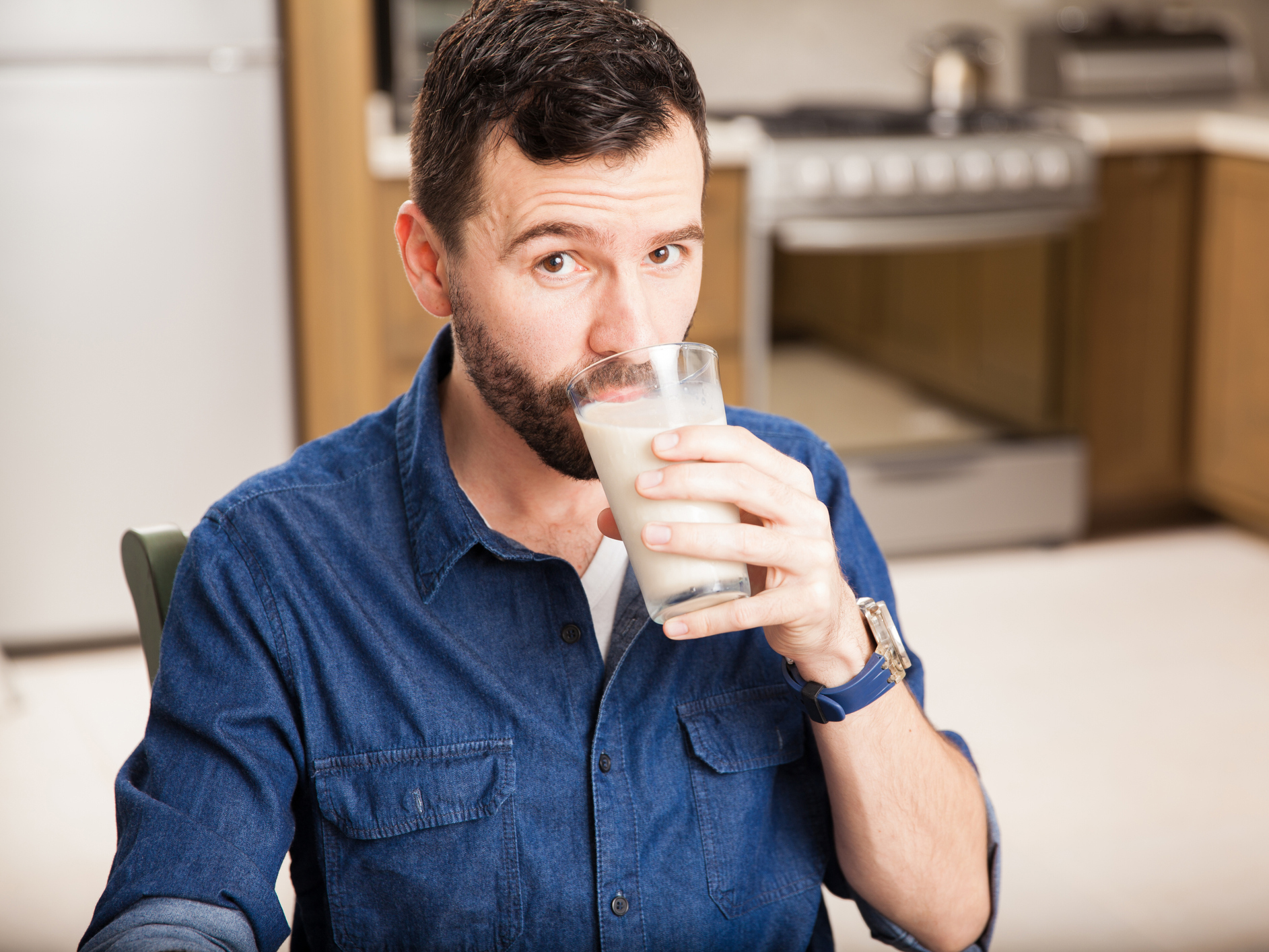Get Easy Health Digest™ in your inbox and don’t miss a thing when you subscribe today. Plus, get the free bonus report, Mother Nature’s Tips, Tricks and Remedies for Cholesterol, Blood Pressure & Blood Sugar as my way of saying welcome to the community!
The complicated connection between dairy and prostate cancer

Dairy marketing has long convinced many of us that drinking a lot of milk is the express lane to strong bones. We’ve told that “milk does a body good.”
Turns out, that may not only be false but a downright dangerous statement that’s luring thousands of men to their early deaths.
Connection between dairy consumption and prostate cancer
Prostate cancer, which affects roughly 175,000 men in the United States each year, is the second leading cause of cancer death in men.
And like many cancers, diet plays a major role in the development of prostate cancer…
Researchers recently combed through the published data on the connections between diet and prostate cancer. The data revealed that dairy, more than other animal-based foods, is associated with an increased risk of prostate cancer.
And, conversely, a plant-based diet was associated with either an unchanged or a decreased risk of prostate cancer.
As this was a review of the scientific literature and not an individual study, the researchers offered no conclusions as to why this might be.
But another study, this one published in the July 2019 issue of the journal Nutrients, stated that “milk intake may increase proliferation [spread] of cancer cells through elevated insulin-like growth factor-I (IGF-1), which is linked to an increased risk of prostate cancer.”
The data is there: too much milk and cheese can increase a man’s risk of prostate cancer. But not all dairy is created equal, as far as prostate cancer risk goes…
The one kind of dairy that’s good for reducing prostate cancer risk
Research shows that eating fermented dairy products, such as yogurt, Greek yogurt, sour cream, kefir and the like, could actually lower the risk of prostate cancer.
Fermented dairy is milk or cream that has been cultured using bacterial strains like Lactobacillus. Some products, like kefir, are fermented with both bacterial strains and yeast, like you would use to make bread or beer.
Related: 12 natural prostate cancer killers
Fermentation adds probiotics, good bacteria that benefit your gut health, to the milk or cream. Having a well-balanced gut microbiome (i.e., lots of positive bacteria and little toxic bacteria) has been shown to reduce the risk of many kinds of cancer, including prostate.
Alternate sources of calcium and protein are less risky than dairy
Calcium is essential. Your body needs it to build strong bones, maintain a strong heart, and keep nerves and muscles healthy. Most people need between 1,000 and 1,200 mg a day.
While it’s true cow’s milk has calcium, it is NOT necessarily the best source of this essential mineral. Here are just a few non-dairy foods that are high in calcium:
- Seeds like chia, flaxseeds, poppy, and sesame seeds
- Leafy greens like spinach, kale and collard greens
- Beans, peas, and lentils
- Sardines and salmon
- Brazil nuts
- Almonds
- Rhubarb
- Figs
A lot of these foods are also high in protein, so you’re not sacrificing anything by getting your calcium from non-dairy sources. Plus, they have omega-3 fatty acids, which promote heart and eye health, positive moods and soothe inflamed joints.
If you, or the men in your life, are drinking a lot of milk and eating a lot of cheese, it might be helpful to eat more greens, nuts, and fish. If possible.
You’ll get the protein and nutrients that do a body good, without an increased cancer risk.
Editor’s note: Discover how to live a cancer prevention lifestyle — using foods, vitamins, minerals and herbs — as well as little-known therapies allowed in other countries but denied to you by American mainstream medicine. Click here to discover Surviving Cancer! A Comprehensive Guide to Understanding the Causes, Treatments and Big Business Behind Medicine’s Most Frightening Diagnosis!
Sources:
- Effect of plant- and animal-based foods on prostate cancer risk — The Journal of the American Osteopathic Association
- Dairy product consumption and prostate cancer risk in the United States — Nutrients
- The role of gut microbiome in the pathogenesis of prostate cancer: A prospective, pilot study — Urology
- Calcium and calcium supplements: Achieving the right balance — Mayo Clinic
- Top 10 vegan sources of calcium — Healthline
- Top 15 sources of calcium — Healthline
- The facts on omega-3 fatty acids — WebMD












